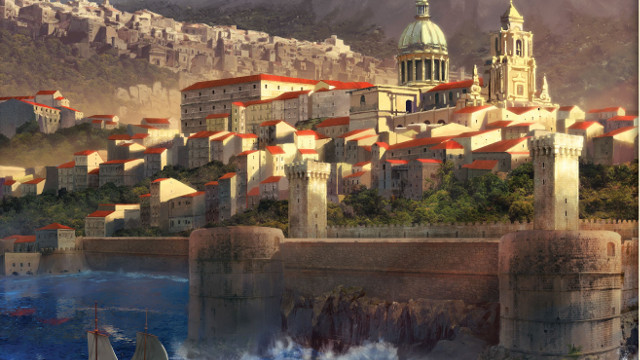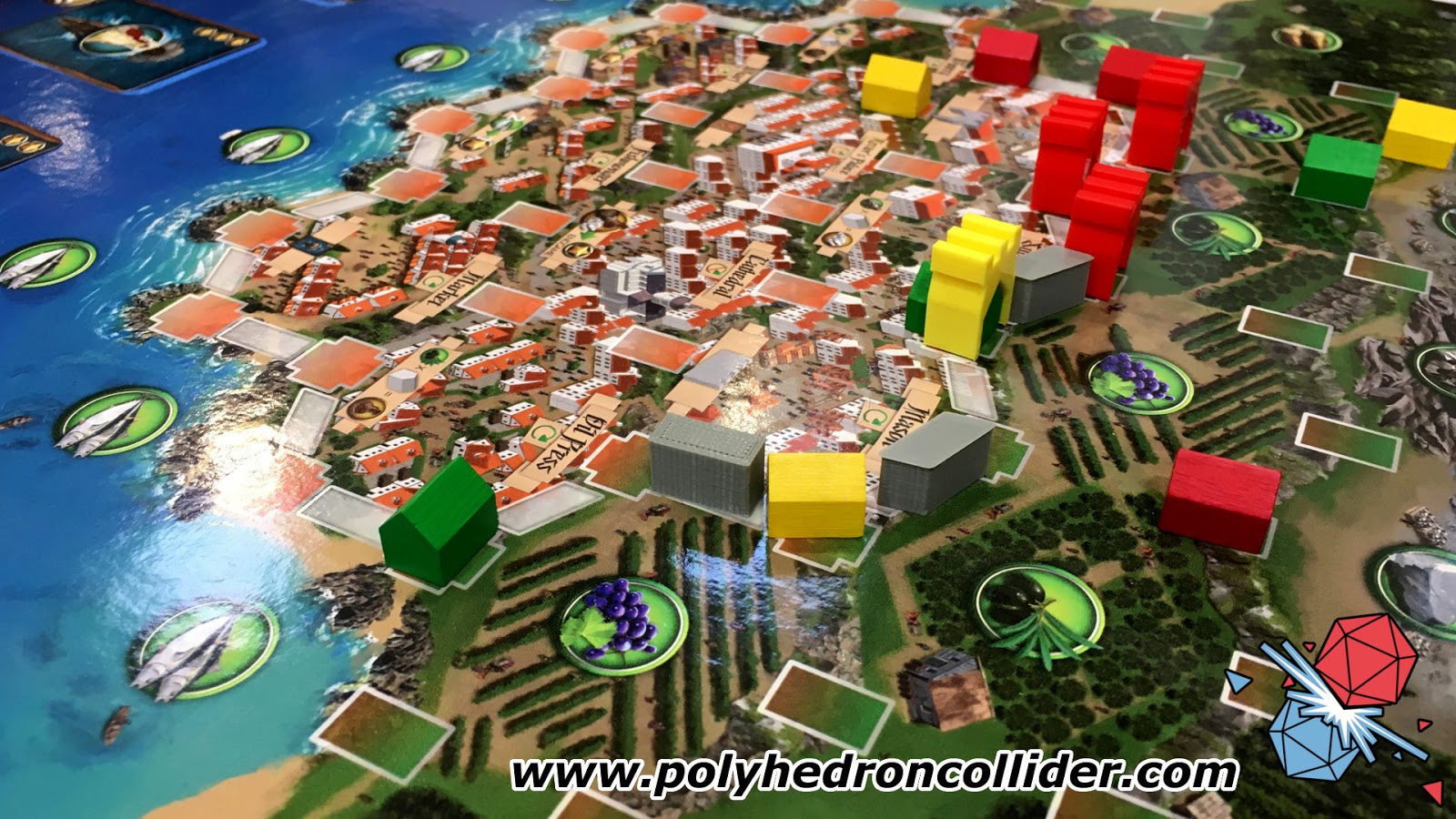Apparently, Ragusa is the name of a port city now called Dubrovnik. I've learnt something new today and hopefully so have you.
Well at the UK Games Expo 2018 I had the chance to play Ragusa with the
game's designer and a lovely little euro game it was too.
The aim of Ragusa is to build the titular city and you'll do this in true euro fashion by gathering resources and exploiting locations. But instead of this game being the rather common worker placement game, this is a house placement game. Each turn you'll claim a location on the board and your little house will permanently remain in that location. This house gives you access to a variety of resources, including your basic wood and stone for building but also including things like olive trees, silver and grapes, all of which can be processed later in the game and sold for huge amounts of profit, or at least that's one of the aims of Ragusa.
The aim of Ragusa is to build the titular city and you'll do this in true euro fashion by gathering resources and exploiting locations. But instead of this game being the rather common worker placement game, this is a house placement game. Each turn you'll claim a location on the board and your little house will permanently remain in that location. This house gives you access to a variety of resources, including your basic wood and stone for building but also including things like olive trees, silver and grapes, all of which can be processed later in the game and sold for huge amounts of profit, or at least that's one of the aims of Ragusa.
Ragusa's clever-thingTM is that the resources you gather aren't some form of individual item that needs to be tracked and controlled but is a little more abstract, representing your income from such endeavours each round.
Ragusa gets a lot more complicated once the players have claimed the untamed wilds and started heading into the city. You need a lot more resources to activate many of the location, but its how activations get fired off that had me scratching my head in deep thought. Each city location is a hex, and a house can be built on any of those six corners, doing so allows you to activate the ability of all the hexes neighbouring that location. Where Ragusa gets really noodle baking is that every other player close to your house can also activate that hex's ability.
It's in these city hexes that you're going to be doing the game winning stuff; pressing olives into oil, refining and selling silver and building the city walls. If you're looking at any of the pictures on this review, you'll see its the city walls that really make the game pop and these walls can be worth a lot of points at the end of the game. There's plenty of other ways to garner points in the city, including selling goods, activating trade routes and collecting bonus cards. After only one game, its hard to tell if one strategy favours another but everything appeared to be quite well balanced. Randomness in Ragusa is near zero, there are a few decks of cards for some things, but again what we saw in a single game meant that these decks weren't driving the game but providing that little bit of variety
If I had to criticise Ragusa, I would have to say that the game had a few rules that were completely new to me or highly situational, like the building costs or how the city tiles activated, and although by the end of the game I was getting my head around them I felt that some of the iconography on the board was a little too hard to distinguish. It's certainly not game breaking and its worth bearing in mind that this was a prototype but I think a crib sheet will go a long way. The problem is also slightly alleviated in that Ragusa starts off very simple and then grows in complexity as you play, meaning that the first half of the game can be very fast but the amount of decision making that has to be done in the second half can slow the game down a little, but no more than any other decision laden euro.
In a world chock full of worker placement games, Ragusa feels both fresh and familiar. Its got plenty of decision making and routes to victory, and I can foresee that its going to play better with more people, simply by making the game more cut-throat and competitive. What's more the final stages of the game looks absolutely stunning, with its beautifully artwork and cute little city walls. I think Ragusa is a game that's going to make a lot of people happy.
This preview is based on a prototype version of the game played at the UK Games Expo with the designer.



Comments
Post a Comment